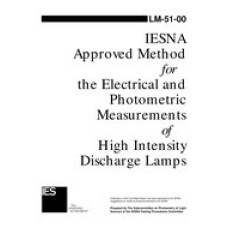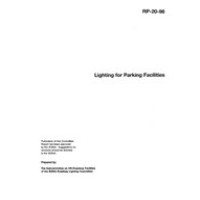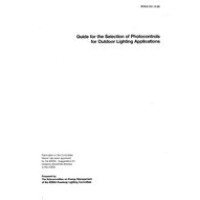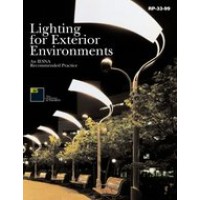IESNA Approved Method for the Electrical and Photometric Measurements of High Intensity Discharge Lamps This Lighting Measurements Guide provides an approved method to obtain a uniform and reproducible measurement of the electrical and photometric characteristics of High Intensity Discharge (HID) lamps under standard conditions in 60 Hz, alternating current circuits. The HID lamps covered by the method in this Guide include the lamp groups commonly known as mercury, metal halide, and high pressured sodium used in general lighting applications. This Guide revises and replaces the previous edition last published in 1993. The photometric information usually required includes total luminous flux (lumens), luminous intensity (candelas) in one or more directions, and color. For the purposes of the approved method in this Guide, the determination of these data are considered photometric measurements. The electrical characteristics usually measured are lamp current, lamp voltage, and lamp power. In this Guide, the determination of these data are considered electrical measurements. Following a brief discussion of nomenclature and definitions, the main sections of this Guide are: ambient conditions giving a recommended temperature for conducting tests; power source characteristics describing the desired wave shape, voltage regulation, and impedance; ballasts operating the lamps from reference and non-reference ballasts; circuits connecting electrical instruments into the test circuit; lamp stabilization obtaining stable light output before any lamp tests are conducted; electrical settings operating the stabilized lamp on the reference circuit; electrical instrumentation identifying measurement uncertainties and impedance limitations; photometer describing the photometer detector?s spectral responsivity; photometric test procedures explaining three test methods and the necessary corrections for each; color measurements citing references for measurements involving CIE and CRI; and test report listing typical items to be reported for each lamp under test. This Guide also contains an Annex about compensating for the presence of electrical test instruments in a test circuit, another Annex explaining how photometric detector deviations from the ideal response curve are accounted for, and a Glossary.
 PDF
PDF
All of our standards document are available in PDF (Portable Document Format), an electronic, downloadable format.You will be able to download the file in your account downloads.
 Multi-User Access
Multi-User Access
After purchasing, you have the ability to assign each license to a specific user.
 Printable
Printable
At any time, you are permitted to make printed copies for your and your members' reference use.
 PDF
PDF
 Multi-User Access
Multi-User Access
 Printable
Printable





